第24章 CHAPTER Language(7)
As if to mark beyond a doubt the insignificance of the part man plays in their thought, sentences are usually subjectless. Although it is a common practice to begin a phrase with the central word of the idea, isolated from what follows by the emphasizing particle "wa" (which means "as to," the French "quant a"), the word thus singled out for distinction is far more likely to be the object of the sentence than its subject. The habit is analogous to the use of our phrase "speaking of,"--that is, simply an emphatic mode of introducing a fresh thought; only that with them, the practice being the rule and not the exception, no correspondingly abrupt effect is produced by it. Ousted thus from the post of honor, the subject is not even permitted the second place. Indeed, it usually fails to put in an appearance anywhere. You may search through sentence after sentence without meeting with the slightest suggestion of such a thing. When so unusual an anomaly as a motive cause is directly adduced, it owes its mention, not to the fact of being the subject, but because for other reasons it happens to be the important word of the thought. The truth is, the Japanese conception of events is only very vaguely subjective. An action is looked upon more as happening than as being performed, as impersonally rather than personally produced. The idea is due, however, to anything but philosophic profundity. It springs from the most superficial of childish conceptions. For the Japanese mind is quite the reverse of abstract. Its consideration of things is concrete to a primitive degree. The language reflects the fact. The few abstract ideas these people now possess are not represented, for the most part, by pure Japanese, but by imported Chinese expressions. The islanders got such general notions from their foreign education, and they imported idea and word at the same time.
Summing up, as it were, in propria persona the impersonality of Japanese speech, the word for "man," "hito," is identical with, and probably originally the same word as "hito," the numeral "one;" a noun and a numeral, from which Aryan languages have coined the only impersonal pronoun they possess. On the one hand, we have the German "mann;" on the other, the French "on". While as if to give the official seal to the oneness of man with the universe, the word mono, thing, is applied, without the faintest implication of insult, to men.
Such, then, is the mould into which, as children, these people learn to cast their thought. What an influence it must exert upon their subsequent views of life we have but to ask of our own memories to know. With each one of us, if we are to advance beyond the steps of the last generation, there comes a time when our growing ideas refuse any longer to fit the childish grooves in which we were taught to let them run. How great the wrench is when this supreme moment arrives we have all felt too keenly ever to forget. We hesitate, we delay, to abandon the beliefs which, dating from the dawn of our being, seem to us even as a part of our very selves.
From the religion of our mother to the birth of our boyish first love, all our early associations send down roots so deep that long after our minds have outgrown them our hearts refuse to give them up. Even when reason conquers at last, sentiment still throbs at the voids they necessarily have left.
In the Far East, this fondness for the old is further consecrated by religion. The worship of ancestors sets its seal upon the traditions of the past, to break which were impious as well as sad.
The golden age, that time when each man himself was young, has lingered on in the lands where it is always morning, and where man has never passed to his prosaic noon. Befitting the place is the mind we find there. As its language so clearly shows, it still is in that early impersonal state to which we all awake first before we become aware of that something we later know so well as self.
Particularly potent with these people is their language, for a reason that also lends it additional interest to us,--because it is their own. Among the mass of foreign thought the Japanese imitativeness has caused the nation to adopt, here is one thing which is indigenous. Half of the present speech, it is true, is of Chinese importation, but conservatism has kept the other half pure.
From what it reveals we can see how each man starts to-day with the same impersonal outlook upon life the race had reached centuries ago, and which it has since kept unchanged. The man's mind has done likewise.
Footnote to CHAPTER 4
[1] Professor Basil Hall Chamberlain: The Japanese Language.